- What Are Acne Holes?
- Types Of Acne Holes
- Causes Acne Holes On The Face
- How To Fill Acne Holes On Face?
- Treatments For Acne Holes
- OTC Products For Acne Scars
- Home Remedies For Acne Scars
- Acne Holes Treatment Cost In India?
- Important Factors Affecting The Cost Of Acne Holes Treatments
- How To Prevent Acne Holes On Face?
- Faqs
Acne Holes On Face Types, Treatment, Cost and Prevention Tips
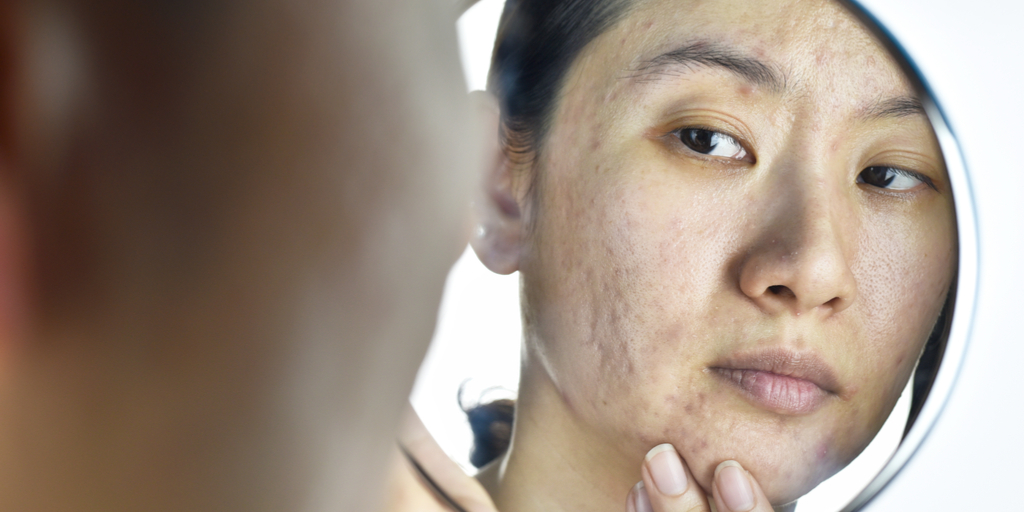
Acne holes or acne scars are indentations that appear after severe acne subsides. In this article, we will learn all about acne holes on face, ways to prevent them and how to manage them. Read to the end to get all the information you need to choose the best acne holes treatment.
What Are Acne Holes?
Acne holes, as the name suggests, are depressions in the skin that look deep or raised depending on the severity and type of acne. They usually appear when the skin cannot fully heal from severe cystic or nodular acne is healing. Sometimes, the body heals too much and creates extra tissue in the damaged area, creating indentations that look like holes. [1]
What Are The Different Types Of Acne Holes?
Below are the different types of acne holes categorised based on their appearance:
- Ice-Pick Scars: These scars appear as small, deep holes resembling pinpricks or enlarged pores. They are narrow and conical, penetrating deep into the skin, typically about 2mm deep.
- Rolling Scars: Characterised by their gentle, sloping edges, these scars create a wavy, undulating texture on the skin, giving it a rolling, uneven appearance.
- Boxcar Scars: These scars have sharp, well-defined edges and are usually round or oval. They create a box-like indentation in the skin and can vary in depth.
- Keloid or Hypertrophic Scars: Unlike the other types, these scars are raised above the skin’s surface. Keloid scars extend beyond the original wound site, while hypertrophic scars remain within the boundary of the injury but are thick and raised due to excess collagen production during healing.
Understanding these categories helps identify the most suitable treatment for each scar type, leading to better skin appearance and texture.
What Causes Acne Holes On The Face?
Acne holes can appear for the following reasons:
- Severe Acne: Most severe acne, such as cystic acne or nodular acne leads to intense skin inflammation. They affect the deep layers of the skin and are painful to touch. Such type of is likely to leave scars or acne holes on the skin. If you don’t get timely treatment, it results in untreatable indentations or deep pits.
- Picking acne: If you have a habit of constantly picking, scabbing or popping acne, then you are more likely to develop acne holes.
- Hereditary factors: If one or both of your parents had acne holes or severe acne flareups, you are more susceptible to developing acne holes. [2]
How To Fill Acne Holes On Face?
Acne holes treatments range from medically-proven dermatological solutions to home remedies. However, it is important to consult an experienced dermatologist for a treatment plan that works best for your acne scars and your unique skin type.
Here is an overview of some common treatment options for acne holes:
Dermatology Treatments For Acne Holes
There are several professional treatments for acne holes that dermatologists customise based on the individual’s scar type and severity.
Here are some effective treatments:
-
Pixel Laser Resurfacing:
Laser skin resurfacing can effectively get rid of holes on the face due to acne and improve your skin texture. Dermatologists use a fractionated laser to create minor wounds, prompting a healing response in the skin. This stimulates the production of new collagen and fills the acne hole after a few sessions. This results in smooth and even skin texture.
-
Micro-Needling Fractional Radiofrequency:
This is a relatively new technology, but it has become a popular treatment option for many people who do not wish to experience downtime after a pixel laser treatment. This treatment uses micro-needling radiofrequency, which heats the deeper layers of the skin and reduces acne holes to deliver a smooth skin texture.
-
Chemical Peels:
To clear ice-pick scars, dermatologists focally apply a specific type of chemical peel containing Trichloroacetic acid called TCA Cross Peel into the depth of scars using a fine-tipped instrument. This enhances collagen production eventually filling the acne holes on the face.
-
Subcision:
Dermatologists recommend this procedure to treat deep acne holes and tethered rolling scars. After applying local anaesthesia, doctors use a microneedle to detach the adhesions under the scar. They may perform a Pixel laser resurfacing treatment or micro-needling procedure after subcision to flatten the acne holes further and restore the skin’s smoothness.
-
Punch Excision, Grafting Or Elevation:
It is a minor surgical procedure that helps treat severe boxcar scars. It involves removing scarred tissue using a punch, followed by suturing the rest of the skin. This method ensures that the larger holes on the skin become smaller in size and treatable with other procedures. In some severe cases, doctors use a tissue graft from another area of the body to fill in the acne scars.
-
Dermal Fillers:
Apart from treating wrinkles and enhancing facial contours, dermal fillers can help fill acne holes in the face. Doctors often inject hyaluronic acid into acne scars to raise them to the skin’s surface and make the texture appear even. However, this treatment is only a temporary solution as the effects of the filler go away as the body absorbs the solution.
-
Dermabrasion:
It is an invasive procedure which involves the use of an abrasive tool to create micro-wounds in the skin. This stimulates the skin’s healing process, reducing the acne holes. The procedure involves a slightly extended downtime, and the chances of unwarranted side effects are considerable compared to other treatments. The results, however, are inferior when compared with the more advanced technologies of laser resurfacing and micro-needling fractional radiofrequency.
-
Microdermabrasion:
Dermatologists use a diamond-tip tool or abrasive crystals under a hand-held vacuum system to exfoliate the top layer of the skin while performing this minimally invasive technique. As cells begin to heal, they form a new surface layer of skin, which helps fade away the acne scars. This method helps only eliminate superficial acne scars.
-
Intralesional Injections:
Dermatologists use injections containing corticosteroids to treat hypertrophic acne scars.
OTC Products For Acne Scars
Over-the-counter products are excellent at reducing the appearance of acne holes or acne scars.
Some commonly used OTC products include:
- Topical Retinoids: Dermatologists recommend creams or gels containing retinoids to reduce the appearance of acne holes, as these creams can increase cell turnover over time.
- AHAs: Alpha Hydroxy Acids or AHAs, help manage acne scars by gently exfoliating the skin. They also stimulate the production of fibroblasts in the skin, such as collagen, improving the skin’s overall complexion.
- Tretinoin: Tretinoin is a strong retinoid usually available on prescription. It helps minimise acne holes with deeper indentations or pits. [3]
Home Remedies For Acne Scars
Here are some popular home remedies for acne scars:
-
Black Seed Oil:
Black seed oil reduces inflammation, speeds up wound healing, and can even out pigmentation.
-
Rosehip Oil:
This is a popular option. You can apply it directly to the skin to reduce pigmentation, discolouration, and scars.
-
Honey:
Honey has been used since ancient times to promote skin healing, which can prevent the appearance of scars to an extent.
-
Aloe Vera:
Aloe vera is a well-known treatment for inflammation, and when used in combination with honey, it helps reduce the appearance of acne scars.
DISCLAIMER:
However, there is no scientific evidence proving the effectiveness of these home remedies. Hence, you must be cautious.
How Much Does Acne Holes Treatment Cost In India?
Here is a breakdown of acne hole treatment costs in India:
Treatment Option |
Estimated Cost per Session (Rs.) |
| Laser Treatment | 7,000 – 20,000 |
| TCA Cross Peel | 3,000 – 7,000 |
| Micro-needling with Fractional Radiofrequency | 10,000 – 25,000 |
| Microdermabrasion | 2,000 – 5,000 |
| Punch Excision | 15,000 – 25,000 |
| Dermal Fillers | 20,000 – 1,00,000 |
| Skin Grafting | 50,000 – 1,00,000 |
| Acne Scar Removal Creams | 900 – 2,000 |
NOTE:
The above list is only an estimate. You will get the accurate cost of your treatment plan based on your specific needs only after you consult a dermatologist.
Important Factors Affecting The Cost Of Acne Holes Treatments
- Size And Depth Of Acne Scars: Deeper scars may require multiple sessions of treatments, adding to the cost.
- Number Of Treatment Sessions: As mentioned, the number of sessions contributes to the treatment expenses.
- Dermatologist’s Experience And Clinic Location: Reputable clinics in big cities that have experienced dermatologists charge higher than others to match the quality of services they offer.
- Type Of Technology Used: Newer, advanced technologies offer lasting results and are safer, thus contributing to the cost of the treatment.
Additional Tips:
- Discuss treatment options and the related cost with your dermatologist.
- Ask about package deals or discounts for multiple sessions.
- Consider consulting with several dermatologists before making a decision.
How To Prevent Acne Holes On Face?
Here are a few tips that can help prevent the formation of acne holes:
- Get timely, suitable treatment for your acne, especially if it is severe cystic acne.
- Do not pop or pick your acne, as it can leave a scar.
- Make sure to wear sunscreen with a high SPF before you step out and avoid direct sun exposure.
- Maintain a good skin care routine, including gentle cleansing and moisturising with non-comedogenic products.
- Use a satin pillowcase to reduce friction on the face.
- Consume a healthy diet rich in fluids to eliminate the toxins from the body. [4]
Takeaway
Treating acne holes can be challenging. The best thing to do is to prevent them by getting timely and appropriate treatment for acne. Suppose you are suffering from acne holes; we recommend that you consult an experienced dermatologist as soon as possible for a customised treatment plan of advanced solutions to meet your skin’s needs. It is also critical to follow the pre and post-care instructions for sustained results. [5]
Frequently Asked Questions On Acne Holes On Face
A1. Acne holes may fade away with time, but they rarely go entirely.
A2. Depending on the type of acne scarring, your dermatologist will recommend treatment options like chemical peels, laser resurfacing and microneedling.
A3. No, getting proper treatment that helps in collagen production is necessary.
A4. No, ice won’t improve pimple holes. It may help in reducing inflammation and associated redness.
A5. In severe acne flare-ups, the inflammation goes deep into the skin, leading to collagen loss and holes in the skin.
A6. Hereditary factors contribute the possibility of your acne holes. Another reason is, of course, severe acne.
A7. Consult a dermatologist as soon as pimples start appearing on your skin. Proper and timely acne treatment can prevent the occurrence of acne holes or scars.
Current Version
October 24, 2024
Written By
Dr. Debatri DattaEdited By
Dr. Debatri DattaMedically Reviewed By
Dr. Debatri DattaJuly 25, 2024
Written By
Dr. Debatri DattaEdited By
Dr. Debatri DattaMedically Reviewed By
Dr. Debatri DattaOctober 27, 2022
Written By
Dr. Debatri DattaEdited By
Dr. Debatri DattaMedically Reviewed By
Dr. Debatri DattaFebruary 27, 2019
Written By
Dr. Debatri DattaEdited By
Dr. Debatri DattaMedically Reviewed By
Dr. Debatri DattaRead This Next
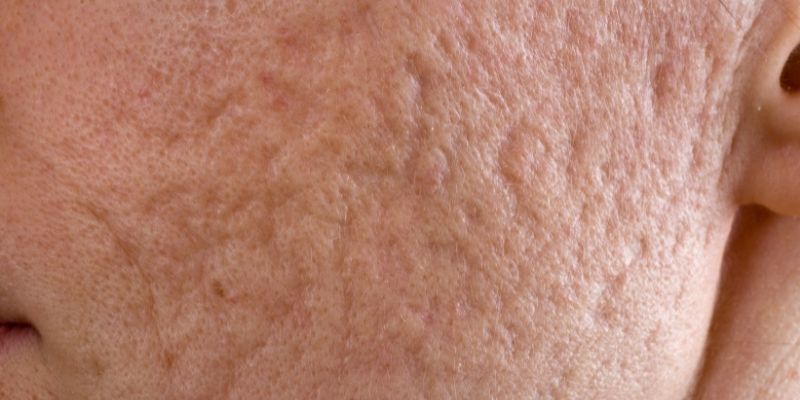
What Are Pockmarks On Face – Meaning, Causes And Best Treatments
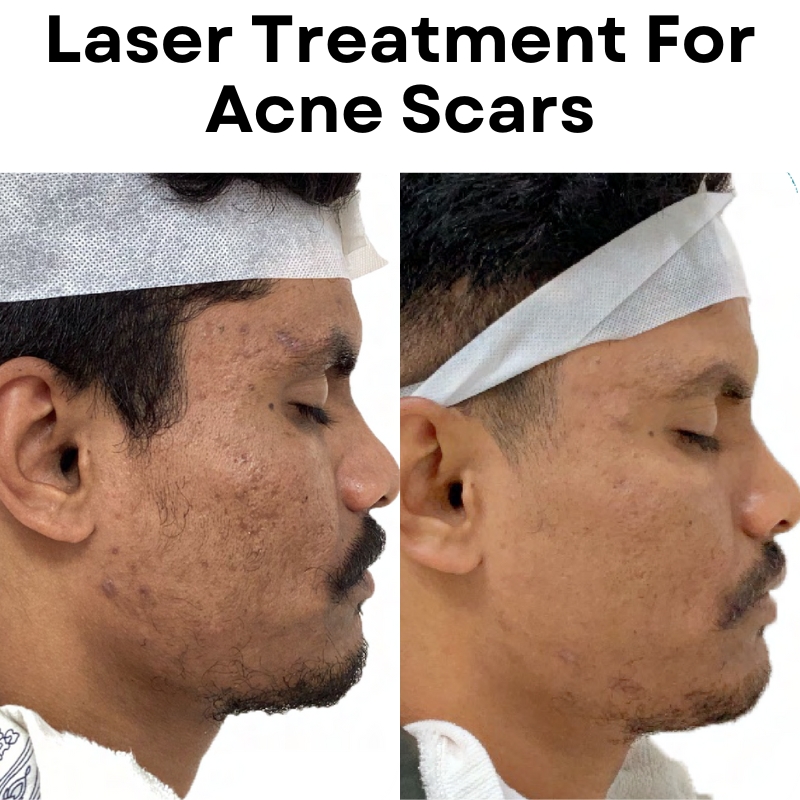
Laser Treatment For Acne Scars: What To Expect, How It Works, Cost, Benefits & Side Effects
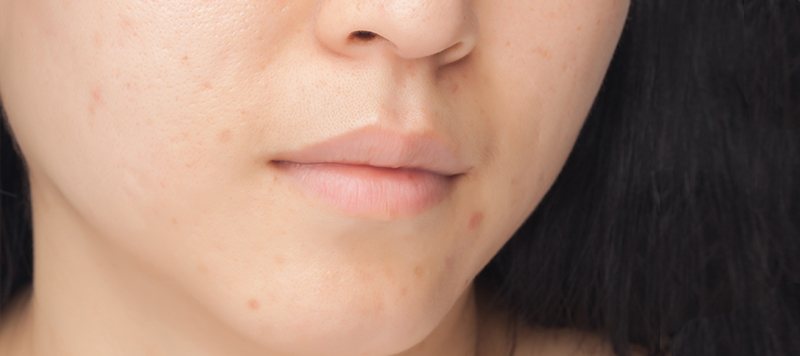
How To Cure Acne Scars & Pimple Marks?
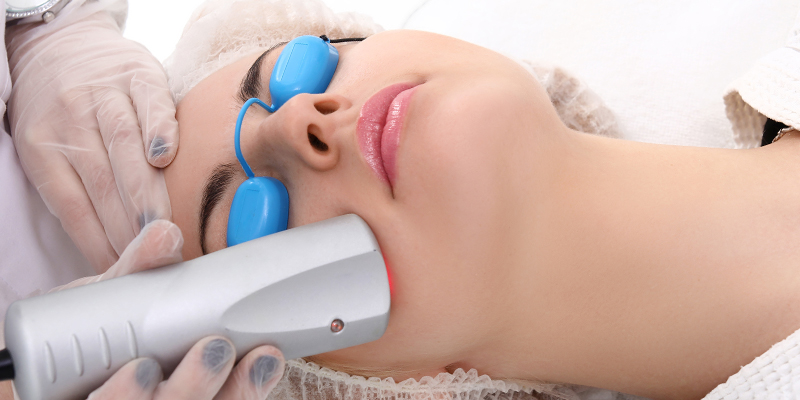
Derma Roller (Microneedle) – Procedure, Benefit, Treatment & Cost
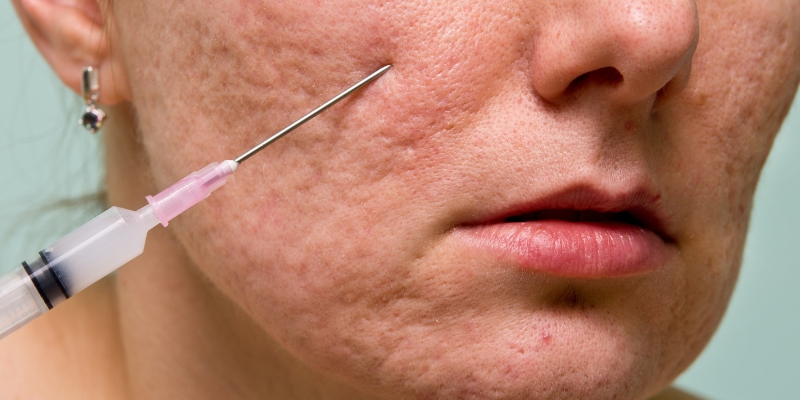
Can Dermal Fillers Help Reverse Acne Scars?





